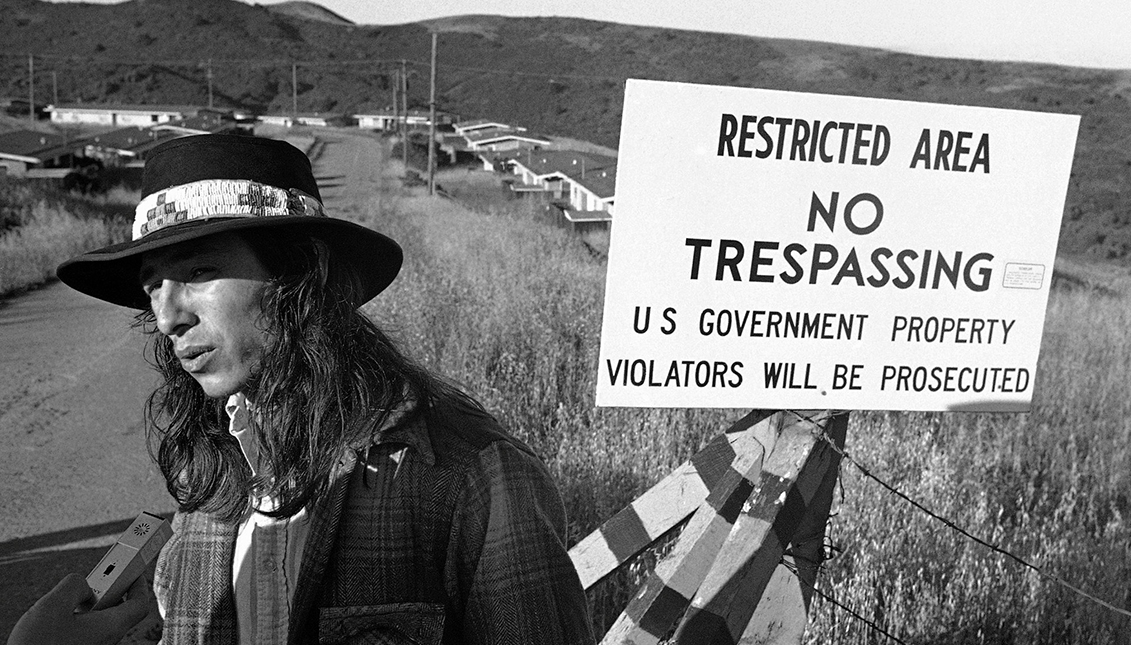
The Alcatraz Sioux who became the voice of the Native Americans
Could a pirate radio program broadcast from Alcatraz have changed the Americans' view of a historical shame?
Prisons have never been a place that invites creativity, but they have been spaces where, traditionally, all kinds of dreamers and revolutionaries have imagined their projects of freedom. Alcatraz Island ceased to house its mythical federal prison in 1963, by order of President Kennedy. And then, a few years later, something as extraordinary and improbable happened there. A young Sioux installed an old radio there and began the journey of a mythical program: Radio Free Alcatraz.
John Trudell was a young 23-year-old Santee Sioux, with earrings and long brown hair. How could he become a romantic leader for the minority of Native Americans who followed him? Only armed with his voice did he achieve the unimaginable: that thousands of listeners began to change their minds about the historical injustices that had been perpetrated against the native peoples of North America. He explained daily how native minorities were marginalized in his country: how, for example, they were forced to pay disproportionate prices for their land, or how they were marginalized in the education system, or how their access to regulated fishing was prevented.
John Trudell would broadcast his show from a cold prison cell with an old radio set, and he would get the power from a generator that made a lot of noise. Everything was as glorious as it was precarious. He used to smoke a cigarette while talking into the microphone, and he always had a guest with him. Today, his programs can be found in the archives of Radio Pacifica. Trudell's voice is preserved there on a series of cassettes labeled "Alcatraz," but they only cover the period between 1969 and 1970. The Radio Free Alcatraz program lasted until 1973, when the FBI already considered the young Trudell a serious threat.
RELATED CONTENT
But we have to go back a few years to understand what a young Sioux was doing in a cell at Alcatraz broadcasting a show that became famous. On November 20, 1969, 79 IOAT activists landed on the island with the intention of settling there. The IOAT was an intertribal platform working for the rights of the entire native minority in the United States. It invoked an old treaty of 1868 to occupy land left uninhabited or inactive by the federal state. This is what had happened to the famous rock in the San Francisco Bay Area.
He would broadcast his program from an icy prison cell with an old radio set, and he always had a guest.
Trudell, who had recently arrived from Vietnam, did not participate in that occupation, but quickly thought that he could meet with the activists who had settled in Alcatraz to try to amplify what was happening in that forgotten corner. It was going to be his way of collaborating in a liberating enterprise. His girlfriend, Fenicia Lou Ordóñez, was initially afraid. But they ended up joining the project. Trudell had studied radio for a semester, so she was able to promote her program and tell the story of the islet's occupants for years. It was the beginning of a long career as an activist against racism and the oppression of ethnic minorities, which would culminate in 1983 with the release of a record of tribal voices.
Trudell's story can teach us something valuable: how a modest cultural initiative can challenge a powerful system, and even change a nation's history.











LEAVE A COMMENT:
Join the discussion! Leave a comment.